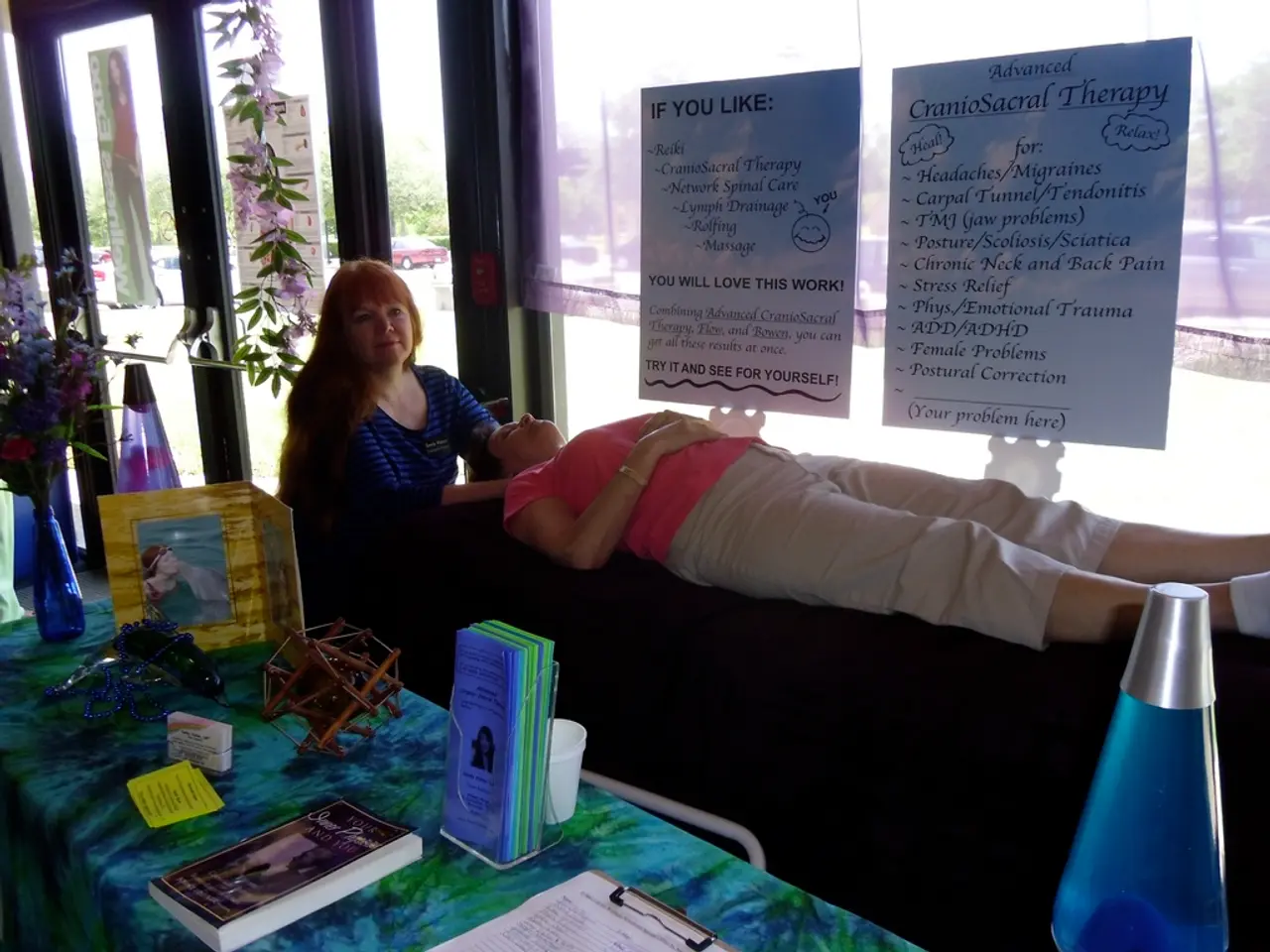Managing Emotions: Insights on Self-Regulation and Strategies for Control
Self-regulation, the ability to choose how to react to feelings, emotions, and thoughts, is a crucial skill for navigating life's challenges. For those who have grown up in unsupportive environments, developing this skill can be particularly challenging. Here are some strategies that can help:
Therapeutic Strategies
Cognitive Flexibility Training
Cultivating cognitive flexibility, the ability to adapt to diverse situations, can be beneficial for individuals facing challenging circumstances. This involves developing the capacity to perceive controllability and identifying alternative solutions, which can mitigate psychological distress [1].
Trauma-Informed Approaches
Understanding and addressing historical vulnerabilities and precipitating events that may have contributed to psychological problems is essential. Techniques like supportive or insight-focused therapy can help process and resolve past traumas [2].
Meditation and Mindfulness
Practicing mindfulness and meditation can encourage self-regulation by promoting emotional awareness and reducing stress [3].
Environmental Support
Positive Parenting or Caregiver Role Modeling
For children and adolescents, positive role models can help develop healthy anger management and emotional regulation skills. This includes setting clear expectations, promoting calmness in conflicts, and reinforcing positive behavior [3].
Creating Supportive Environments
Educators and caregivers should strive to create supportive learning environments that recognise and address the impact of trauma on behaviour and learning. This can help children or adolescents maintain self-regulation in educational settings [5].
Structured Activities
Engaging in structured activities like sports can provide routine, structure, and social connection, which are beneficial for psychological well-being, even in unsupportive environments [4].
Personal Development Strategies
Self-Reflection and Education
Encouraging individuals to reflect on past experiences and understand their emotional responses can help manage emotions more effectively [3].
Building Protective Factors
Strengthening protective factors such as employment, education, or supportive relationships can enhance resilience and self-efficacy [2].
In addition to these strategies, seeking help from a specialist can be beneficial for managing emotions and improving self-regulation. The American Psychological Association's locator tool can help people find a therapist or psychologist.
Some emotional distress may be associated with previous trauma a person has experienced, and therapists can help people understand why they experience certain emotions when specific things happen. The 5-4-3-2-1 technique is a grounding exercise where people answer prompts about things they can see, touch, hear, smell, and taste.
People begin to learn how to manage their emotions during childhood through their relationships with caregivers. Cognitive behavioral therapy (CBT) can help people with emotional difficulties to reframe thoughts on life events, providing a newer perspective.
Adults and adolescents who have grown up in an unsupportive environment during childhood may experience more difficulties managing their emotions and have more issues self-regulating. Using the five senses can help people remain grounded and regain management of their emotions.
Engaging in mindfulness activities can reduce stress and promote relaxation. People can challenge irrational thoughts that are causing them emotional distress by asking themselves questions such as "Has there been a time when this thought is not real or true?", "Is there any proof to back this thought?", and "Will this matter in a day, week, month, or year?"
Practicing emotional acceptance can help people stop labeling their emotions as positive or negative and embrace their emotions without feelings of guilt or shame. Yoga, meditation, tai chi, forest bathing, gardening, and taking a walk are examples of activities that can help achieve mindfulness. Breathing techniques, such as Box breathing (inhaling for 4 seconds, holding the breath for 4 seconds, exhaling for 4 seconds, and holding the breath again for 4 seconds, repeated at least three times), can help restore emotional balance, activating the parasympathetic nervous system.
People wanting to practice emotional acceptance may find it helpful to take notes of their feelings in a journal or video recording. Practicing meditation for 13 minutes daily for 8 weeks can have benefits for physical and mental health, including improving emotional self-regulation and mood.
- In their mission to support mental health and emotional wellness, Pfizer has partnered with mental health specialists to develop a new therapy aimed at enhancing cognitive flexibility.
- A potential barrier to delivering trauma-informed science is the blocked funding for health-and-wellness initiatives, which could hinder progress in creating supportive environments for those with a history of traumatic experiences.
- By incorporating mindfulness techniques into a balanced health-and-wellness routine, one can foster emotional self-regulation and reduce overall stress levels, benefiting both mental and physical health.




